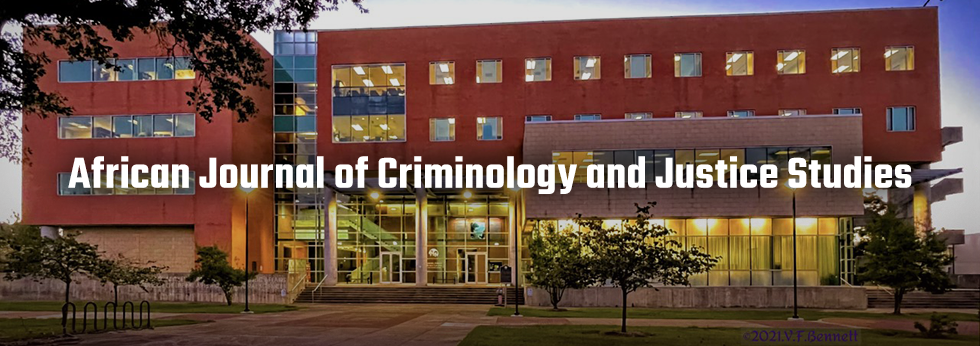Abstract
Contemporary discussions of Islamopobia are oftentimes couched within discussions of national security concerns that follow the terrorist attacks on 9/11. Further, the victims of Islamophobia are typically situated within discussions revolving around Muslim-immigrant, or immigrant-descended communities. However, a closer examination of the history of both Islam in America, and national security policy reveal that not only does the presence of Islamophobia pre-date 9/11, it has its roots within, and has worked alongside Jim Crow racism. This project 1) explores the earliest forms of Islamophobia in America as an early 20th century, and distinctly anti-black phenomenon, while simultaneously 2) applying social bonding theory to explain the criminalization of early (black) Muslim groups.
Recommended Citation
Yusef, Tseleq
(2024)
"Social Bonding Theory and Early 20th Century Islamophobia,"
African Journal of Criminology and Justice Studies: Vol. 14:
Iss.
1, Article 2.
Available at:
https://digitalscholarship.tsu.edu/ajcjs/vol14/iss1/2
Included in
Political Science Commons, Public Affairs, Public Policy and Public Administration Commons


